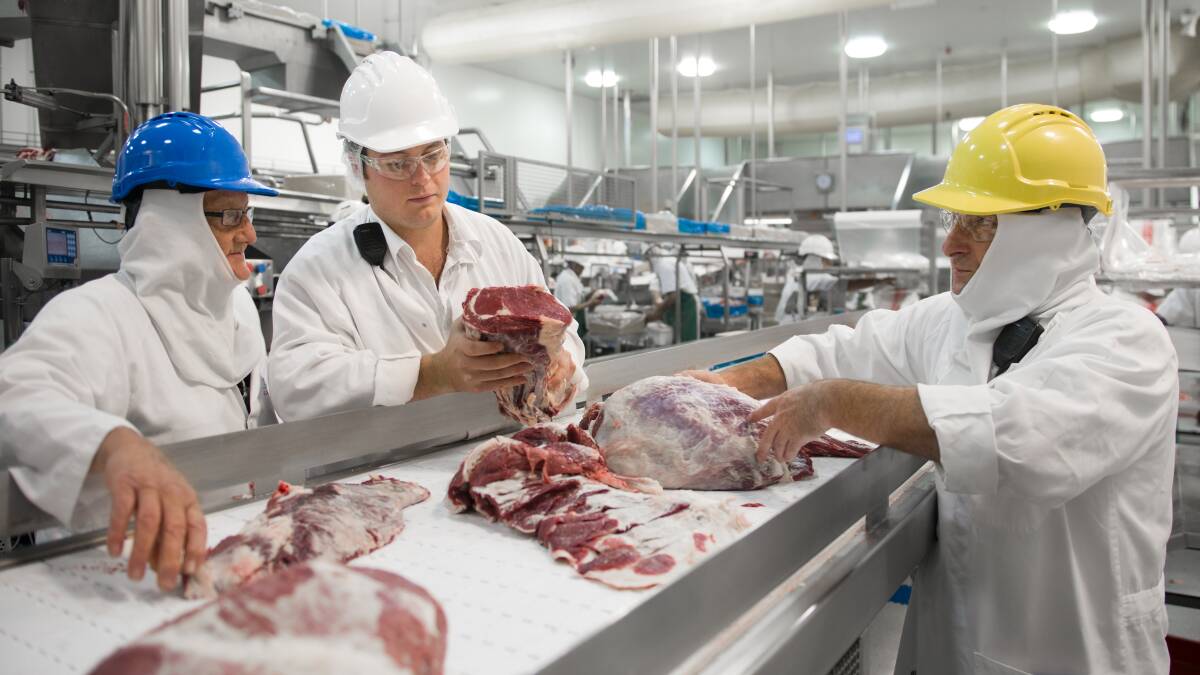
THE high cost of cattle and extreme shortage is pushing processors into a corner of struggling to maintain minimum weekly kill numbers, prompting talk that Christmas shutdowns might run longer this year.
Subscribe now for unlimited access to all our agricultural news
across the nation
or signup to continue reading
Compounding the situation are challenges like export logistical hurdles due to the pandemic, intense labour shortages and uncertainty around ongoing demand in key markets.
The squeeze on margins this year was always anticipated but some analysts now put losses per animal in record territory, at close to $300 a head.
Still, beef processing is not an activity that can be switched on and off easily so many facilities have continued to offer red hot direct consignment prices to retain throughput.
Meat & Livestock Australia analysts report the Queensland 100 day grainfed steer over-the-hook Indicator moved into record territory this week at 681 cents per kilogram carcase weight, a 72c spike on year-ago levels.
In NSW, the trade steer, heavy steer and medium cow over-the-hook indicators hit records and in Victoria, the medium cow jumped 63c to hit a record high.
ALSO READ:
While normal seasonal shutdowns that align with saleyard breaks occur over Christmas, there were a number of key aspects plants would have to factor into decisions this year, Australian Meat Industry Council chief executive officer Patrick Hutchinson said.
Rain forecasts is one. Producers will likely have the feed to hold animals this summer, so supply issues - and the demand from restockers that is pushing the cattle market further into record territory - won't be easing for some time.
"There is also the beef demand aspect. While it has been strong from the domestic market, there has been differing ability to meet overseas demand due to the pandemic," Mr Hutchinson said.
"Our major export markets are also now going into winter, which raises the possibility of more lockdowns."
And there were certainly issues with market access at play, he agreed, most notably in China.
Seven Australian abattoirs remain suspended from supplying China - four due to labeling issues which they have been navigating since May, one Queensland operation dealing with a residue issue raised in August and two in Victoria due to COVID-19 outbreaks.
These abattoirs are all substantial players in the frozen beef area, which goes some way to explaining declining export figures to China in that channel.
Chinese officials are now assessing documentation prepared by the plants to demonstrate actions taken to rectify concerns.
Labour woes
Meanwhile, Mr Hutchinson said the processing sector was currently seeing the most depressed application rates on job vacancies in its history.
The international workforce had been impacted by travel restrictions and pandemic welfare payments coming off at a slow rate were also playing a role, he said.
"And with borders in Australia starting to open, people are desperate to take holidays so potentially processors might shut for a longer length of time to cater for this," he said.
Thomas Elder Markets' Matt Dalgleish said given the difficult trading environment at the moment it would make sense for processors to close for summer earlier than usual.
TEM's modelling has the annual average processor margin for 2020 now sitting at a loss of $118, which Mr Dalgleish said compared to the annual average loss of $129 and $121 achieved during the 2016 and 2017 seasons, respectively.
But it was "less about shutdown times and more about understanding all of the issues confronting processors at the moment, which in turn have an impact on their decision making" that should concern producers right now, Mr Hutchinson said.
The pandemic had underlined the faith consumers have in the product and the challenge was for the entire supply chain to work together to fully capitalise on that.
In response to the question of why processors losing money on every head continue to run their shops, Mecardo analyst Adrian Ladaniwskyi wrote: "The short answer is that it can still be the economically optimal choice to lose money by staying in operation in the short term, if the alternative is losing more over the long run from business disruption."
Retaining both workers, and customers, was critical, he argued, and beef processing was a long-term game.


